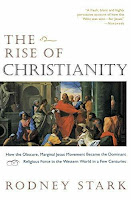Leading in Times of Crisis
While wandering the landscape of leadership, you will be
sure to encounter crisis...and this Covid-19 pandemic is providing leaders a laboratory of experience & opportunity
 In the initial days of any crisis, all eyes are on the crisis
itself. Concern runs deep. Focus is on the people who are most affected. But
then "someone" has to mobilize and deploy the resources needed to
address the situation. Here is where leadership has to take the reins and the
responsibility. In these kinds of situations, the decisions over how to help in
a crisis are often themselves made in a context of crisis. Not all the
information is at hand. Resources are not always fully in place. Yet action
is needed. There is no perfect process, but the leader has to step up to
the plate.
In the initial days of any crisis, all eyes are on the crisis
itself. Concern runs deep. Focus is on the people who are most affected. But
then "someone" has to mobilize and deploy the resources needed to
address the situation. Here is where leadership has to take the reins and the
responsibility. In these kinds of situations, the decisions over how to help in
a crisis are often themselves made in a context of crisis. Not all the
information is at hand. Resources are not always fully in place. Yet action
is needed. There is no perfect process, but the leader has to step up to
the plate.
And here is where it gets interesting. Every time we watch the international
response to massive disruptions like this pandemic, it only takes a few days for criticism
to pour in over the leadership of the effort to deploy countermeasures. It's either not
fast enough, or it's too slow, or not the right kind of help at the right time.
Funny how we all can lead so effectively from the chair in front of the TV.
Leading in a crisis is fraught with the competing expectations of multiple
stakeholders in the process. What can you in that situation, do to provide
strong leadership? I offer 3 thoughts:
Slow down
Panic generates speed. The human fight or flight response is a naturally occurring defense mechanism and becomes our default response when we are faced
with danger. There is a certain 'mob mentality' that can take over when crisis hits. Look at the world
reaction to the financial crisis of Sept 2008 and what is happening now (we will forever think of 2020 in humorous hindsight as the great toilet paper shortage).
Left unchecked by good leadership actions, panic will naturally overwhelm the system. Good leaders calm their
own panic by deliberately slowing down their thinking, resisting the panic-reaction.
Your brain is a stage and if there are too many actors on it, internal chaos
ensues. Remove some of the actors. Clear your mental space of the clutter that
comes with crisis so that you can order your thoughts when others' thoughts are
in disarray.
Friends of mine in another business recently shared with me that leaders have
been conditioned for forward motion and for advance; to always keep the wind in
our sails. The idea of slowing down and coasting is perceived as sure defeat in
a competitive, forward motion world. Yet there is a time when 'coasting' is
actually a good thing. In fact, all of life is based on a principle of
'oscillation' - periods of growth combined with rest. Take a walk, get away
with your team, physically move away from your current environment so you can
center your thoughts.
Gain clarity
Gain clarity on 2 fronts:
1. The Facts. This is not just a matter of getting the facts, but then of
accepting them. It does you and your employees/followers no good to deny what
is going on. The people you lead are not naive. They can see the same landscape
as you. You may know more of the details, you may be able to see farther, but
you are not the only one 'in the know'.
2. The Future. This may be one of the best times for you to gain clarity on
your personal and corporate purpose. Why?
◦ Purpose is both an anchor and a beacon. It holds us down in a storm and it
directs us to the future. So, a crisis is a gut-check time. Is your personal
purpose and your corporate purpose in sufficient alignment for you to lead with
integrity? Are you anchored so as not to panic yet able to see the future with
hope and confidence? You will lead with more confidence and competence when
this alignment is in place.
◦ Retaining the energy, focus and effort of employees/followers in uncertain
times depends more than you think on their connection with the long term vision
and purpose of the organization. People decide on how much of themselves they
will give to their work depending on the level to which they feel they are
connected to something they believe in. A Harris Interactive poll quoted by
Steven Covey in his book "The 8th Habit" indicated only 37% of
workers have a clear understanding of the purpose of their organization. What
do you think that does to productivity and effectiveness? A disconnect like
this when crisis hits only further diminishes the very energy you need from
your people to make it through a tough time! They are more likely to stay with
you if they know you have both an anchor and a beacon. In uncertain times
clarity on purpose creates certainty, (which translates to loyalty) and hope
(which leads to forward energy).
Communicate
“Communicate deeply but quickly. In times of crisis people's fears matter to an
organization even more than they should during “normal” times. If everybody in
an organization believes they are on a sinking boat, they will disengage - thus
increasing the vulnerability and accelerating the downward spiral of the
organization.”(Holger Nauheimer, 2008, The Change Management Newsletter)

Nauheimer also declares that truly
transformational leaders will walk the talk in front of their people,
demonstrating what it means to wrestle with reality, make tough decisions and
communicate them wisely. Your actions will inspire them to make wise
decisions too. Have regular, short meetings with different groups within your
organization. Tell them what you are doing to address issues. Get feedback on
how your actions to address uncertainty are working. Encourage honesty and
transparency so that you can hear their opinions and ideas. This process though
'labour-intensive', will increase confidence and loyalty within your teams. You
might want to consider using an external facilitator to help with
communications. During times of crises or uncertainty, people tend be guided by
their assumptions. It is difficult internally to challenge those perspectives.
An external, strictly impartial facilitator can help to map out different
assumptions and guide teams to productive outcomes.
Conclusion:
Concerning the advance of human discovery throughout history, Daniel Boorstin
in his book The Discoverers concluded that “the greatest barrier to
discovery is not ignorance, but the illusion of knowledge”. A leader's current
ignorance of the strategies needed to navigate uncertainty or crisis is not the
final factor determining success or failure. Believing you already know what
there is to know is the greatest danger because it blocks you from the learning
needed to create new solutions for new conditions.
Leading though a crisis will stir up the pot of competing expectations. People will always
criticize your decisions. Lead anyway.
The people IN THE CRISIS matter more
than the people "calling the play from the couch".










